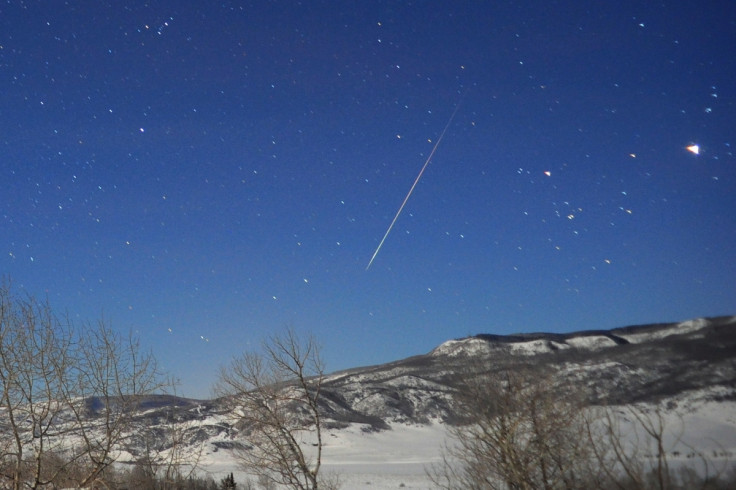Delta Aquarids 2014: Watch Live Stream of Meteor Shower Online

The Delta Aquarids meteor shower is to peak over the weekend and early next week, with up to 20 meteors per hour expected.
The shower will be visible in hours of darkness and should be particularly good to watch this year because of the new moon on 26 July – meaning the sky will be extra dark.
Nasa will be providing a live stream of the meteor shower from its Marshall Space Flight Centre showing the skies over Huntsville, Alabama, as long as the weather permits.
"On the night of 29-30 July, a favourable new moon will help darken the skies for the 2014 Delta Aquarid meteor shower (the Southern Delta Aquarids)," Nasa said.
"Although this is considered a minor meteor shower with projected peak rates at 15-20 meteors/hour, the darker skies will help even faint meteors shine more brightly."
The Delta Aquarid meteor shower takes place when Earth passes through the debris left by two sungrazing comets, Marsden and Krach, which broke apart in space.
Nasa will begin its live stream at 1.30am GMT on 30 July (9.30pm EDT).
Also broadcasting the event, a live stream from the Slooh telescope will be showing online from 3am GMT on 29 July from Arizona.
The Delta Aquarids precedes the Perseid meteor shower in mid-August, often thought of as the best meteor shower of the year for people living in the Northern Hemisphere.
Perseids is due to peak this year over 11, 12 and 13 of August, with up to 100 meteors per hour produced.
© Copyright IBTimes 2025. All rights reserved.






















